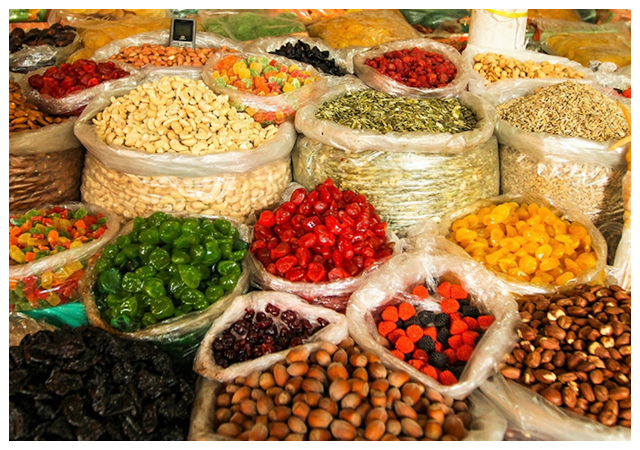
Due to the increase in food inflation to 32.84 percent in November, Nigerians are having a harder time feeding themselves.
The Consumer Price Index: November 2023 data from the National Bureau of Statistics, which was made public on Friday, shows that headline inflation increased to 28.20 percent in November from 27.33 percent in October.
The states of Kogi, Kwara, and Rivers experienced the most increases in food prices, with food inflation reaching 41.29 percent, 40.72 percent, and 40.22 percent, respectively.
According to the survey, rising costs for bread and cereals, oil and fat, potatoes, yams and other tubers, fish, fruit, meat, vegetables, coffee, tea, and cocoa were the main causes of the increase in food prices.
The NBS said, “On a month-on-month basis, the food inflation rate in November 2023 was 2.42 per cent this was 0.51 per cent higher compared to the rate recorded in October 2023 (1.91 per cent).
“The average annual rate of Food inflation for the twelve-months ending November 2023 over the previous twelve-month average was 27.09 per cent, which was a 6.68 percentage points increase from the average annual rate of change recorded in November 2022 (20.41 per cent).”
It further noted that food was cheapest in Bauchi (26.14 per cent), Borno (27.34 per cent), and Jigawa (27.63 per cent).
In November, Nigeria’s inflation rate continued its climb to another record 18-year high. According to the country’s statistics body, headline inflation surged by 0.87 percentage points in November to a new record high in almost two decades.
It stated, “In November 2023, the headline inflation rate increased to 28.20 per cent relative to October 2023 headline inflation rate which was 27.33 per cent. Looking at the movement, the November 2023 headline inflation rate showed an increase of 0.87 per cent points when compared to the October 2023 headline inflation rate.
“On a year-on-year basis, the headline inflation rate was 6.73 per cent points higher compared to the rate recorded in November 2022, which was 21.47 per cent. This shows that the headline inflation rate (year-on-year basis) increased in November 2023 when compared to the same month in the preceding year (i.e., November 2022).”
Month-over-month headline inflation last month was 2.09 percent, 0.35 percentage points higher than October’s 1.73 percent, primarily due to the spike in food prices. This defies the Central Bank of Nigeria’s recent claim that monthly inflation is going down.
Isa AbdulMumin, the former director of the corporate communications department of the apex bank, recently claimed,
“Available statistics showed that the first indication of deceleration in prices was recorded in September.
“Further reforms in the money market, which commenced in October, had accelerated easing in prices, as indicated by the substantial drop in month-on-month changes recorded in October.
“Moderation in month-on-month changes in prices observed in the headline, food, and core components of the consumer basket followed reforms in the money market and relative stability in the FX market.”
The highest rates of inflation were found in Borno (22.47 percent), Katsina (24.91 percent), and Plateau (25.53 percent), while the lowest rates were found in Kogi (33.28 percent), Lagos (32.30 percent), and Rivers (32.25%).
The recent spike in the nation’s inflation rate has been attributed to the withdrawal of fuel subsidies and the foreign currency rate unification strategy.
It noted, “The impact of this inflation is especially hard on the poor and vulnerable. The government has initiated targeted cash transfers to mitigate some of the impact on the most vulnerable households.
“In addition, a holistic approach to reducing inflation, including through tighter fiscal and monetary policies, is also needed.”
The bank pointed out that the nation’s slow development and growing inflation caused poverty to rise from 40% in 2018 to 46% in 2023, putting an extra 24 million people below the poverty line.
In 2023, there will be 104 million poor people in the nation, up from 79 million in 2018.
It did, however, point out that, at least partially, the medium-term reforms (fuel subsidies and exchange rate unification) would buck that tendency by promoting faster growth and lower inflation.
However, the Bretton-Woods institution predicted that if monetary policy tightened more quickly, inflation would decline by 2024 and beyond.
Olayemi Cardoso, the governor of the CBN, recently stated that the central bank planned to concentrate on inflation and stabilize prices.
